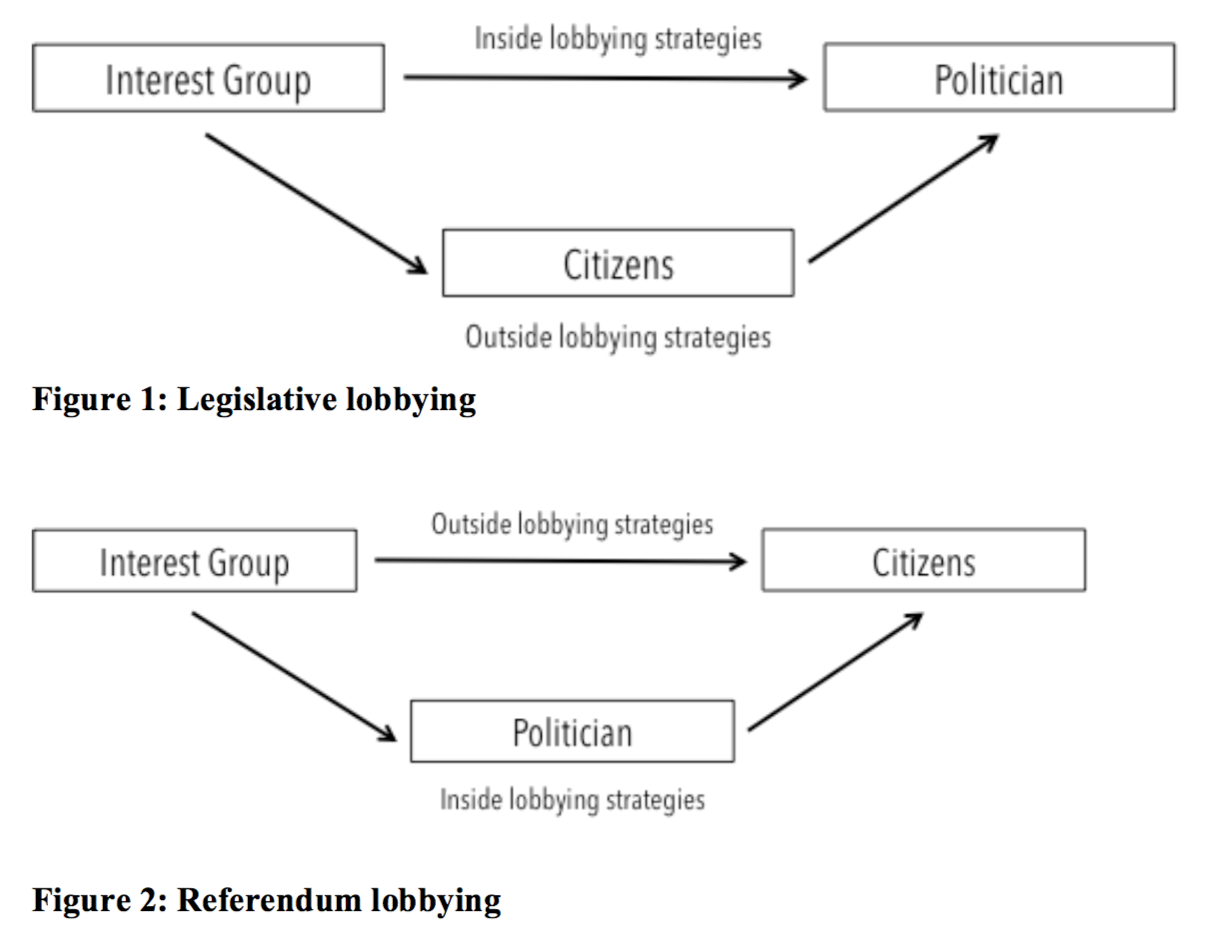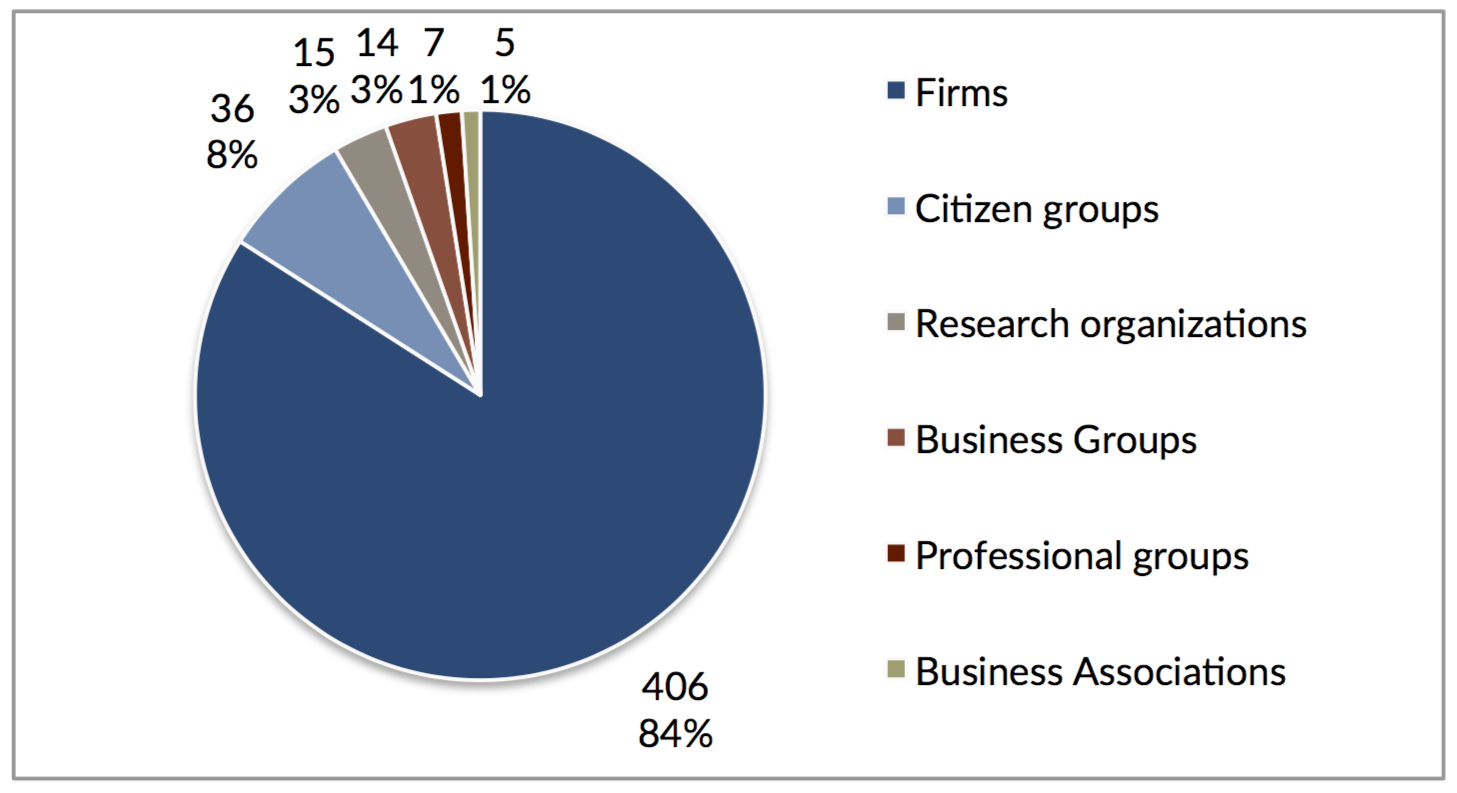 Although a lot has been written about the role of politicians, government officials and academics, there seems to be a vacuum when it comes to the role and influence of lobbying groups in the Brexit vote. It looked as though almost every sector with a stake in the UK’s future relationship with the European Union was rallying and trying to persuade the voters of its own stance, writes Bas Redert. He finds that in this case the usual underdogs of lobbying were the surprising winners of the Brexit vote debate.
Although a lot has been written about the role of politicians, government officials and academics, there seems to be a vacuum when it comes to the role and influence of lobbying groups in the Brexit vote. It looked as though almost every sector with a stake in the UK’s future relationship with the European Union was rallying and trying to persuade the voters of its own stance, writes Bas Redert. He finds that in this case the usual underdogs of lobbying were the surprising winners of the Brexit vote debate.
This became even clearer when reading the British newspapers during the campaign. Companies, industries, from various sectors, but also non-governmental organisations (NGOs) were making statements and explaining their specific arguments for or against Brexit to the readers. This is logical when one considers that interest groups can reach large numbers of citizens via the media. Being well represented in various newspapers means that an interest group is able to highlight its position, explain its arguments or debunk competing arguments, and eventually persuade people to their position. Therefore, media prominence is of major importance for lobbying groups. However, influencing public debate via the media is not an everyday business for most interest groups. During the Brexit vote specifically, the underdogs of lobbying were able to gain significantly more media prominence than the usual winners of lobbying, namely big business.
Normally, in what one would call legislative lobbying, lobby groups have two options: reaching out to politicians (inside lobbying) or trying to stir up public debate (outside lobbying). A large body of scholarly work is devoted to the analysis which groups use which strategy, what factors determine their choice, and which strategy is more effective. The general conclusion is that firms and business groups have sufficient resources to directly get in touch with politicians by setting up meetings, publishing position papers and writing letters. By influencing and potentially persuading politicians, these interest groups can have a direct influence on policy. These well-endowed groups are often the winners of lobbying. The underdogs, like citizen groups, NGOs and research groups, on the other hand, often do not have the funds to directly persuade politicians, and resort to grassroots campaigning: setting up (social)-media campaigns, organising protests and petitions. These activities might too stir up public debate and influence politicians, which in its turn make final decisions over policy (see figure 1).

The extraordinary situation of a referendum, however, causes that every interest group has to focus its resources on influencing citizens, not politicians. As figure 2 shows, the politician and the citizen have swapped places: the citizen makes the final decision, the politician can merely try to influence citizens. Here, presence and prominence in the media are highly important. A single news article, television interview or social media post can reach hundreds, maybe even thousands of citizens in a cheap and efficient way.
The shift from inside to outside lobbying via the media creates an interesting situation. Whereas business groups specialised in inside lobbying suddenly have to focus on outside strategies, the usual underdogs (citizen groups, NGOs and research institutes) have a major advantage. These groups have previous experiences in publishing their arguments and possess precious contacts with journalists. In other words, the underdogs now have valuable assets to help them to influence the public debate, and thus the eventual outcome of a referendum.
This had some interesting consequences for the lobbying activities before the Brexit vote regarding media presence and media prominence of the different interest groups. Here, media presence can be defined as the number of times an interest group has published or is quoted in an article, and media prominence as the number of words a newspaper devotes to an interest group. The more media prominence a group has, the better it can explain its arguments, or the more arguments it can articulate.
After a qualitative analysis of 508 newspaper articles from The Guardian and The Daily Telegraph, 483 interest groups have been identified that were represented in the media. The majority of these groups consists of individual firms and business associations (see figure 3). This is rather logical if one considers that Brexit will have major economic consequences in almost all economic sectors. However, some interest groups were able to raise arguments about other sorts of consequences (e.g. environmental arguments by WWF; or humanitarian arguments by Save the Children).
 Figure 3: Distribution of interest groups
Figure 3: Distribution of interest groups
The comparison between media presence and prominence of all groups shows that business groups, despite their disadvantage, were able to be represented in the media more often than other groups. However, business did not necessarily enjoy more media prominence. Significantly less space in articles was devoted to business groups than to other, non-business lobbying groups. This shows that business lobbying groups might have chosen quantity over quality when it came to their media output before the Brexit vote.
 Image by Curtis Palmer, (Flickr), licenced under CC BY 2.0.
Image by Curtis Palmer, (Flickr), licenced under CC BY 2.0.
I also analysed whether the fact that an interest group was either pro- or anti-Brexit influenced its presence and prominence in the two newspapers. Or, in other words, whether the two newspapers were biased in providing certain interest groups with an outlet to express their positions and arguments. What is rather surprising here, is that the analyses show that neutral interest groups, meaning groups that are neither in favour or opposing Brexit, were more likely to gain media prominence than outspoken partisan groups.
Having had a closer look at the contents of the newspaper coverage, it is evident that independent and objective actors, like research institutes and independent think-tanks, had an important and more prominent role in the media coverage. These groups did not articulate any preferred outcome of the Brexit referendum but merely provided insights about the potential consequences of Brexit. It seems that journalists highly valued those ‘objective’ forms of information. This implies that in a political arena where almost every firm, NGO, association, politician and policymaker had a say, there was a high demand for arguments based on academic research.
These findings show that the Brexit referendum might have been a relative level-playing field for influence-seeking interest groups compared to legislative lobbying. Whereas business interests usually are powerful players, the Brexit vote case shows that non-business, independent and neutral actors had a clear advantage in outside lobbying. However, according to various business representatives I interviewed, the real lobbying has only started after the vote. For lobbyists, and interest group researchers for that matter, it is not the outcome of the referendum, but the actual process of the United Kingdom’s withdrawal from the EU that matters most.
This post represents the views of the author and not those of the Brexit blog, nor the LSE.
Bas Redert is a PhD-candidate at the Antwerp Centre of Institutions and Multi-level Politics (University of Antwerp). Currently, he is working on the mobilisation of financial sector lobbying groups and the consequences it has on the legitimacy of post-crisis European Union.






